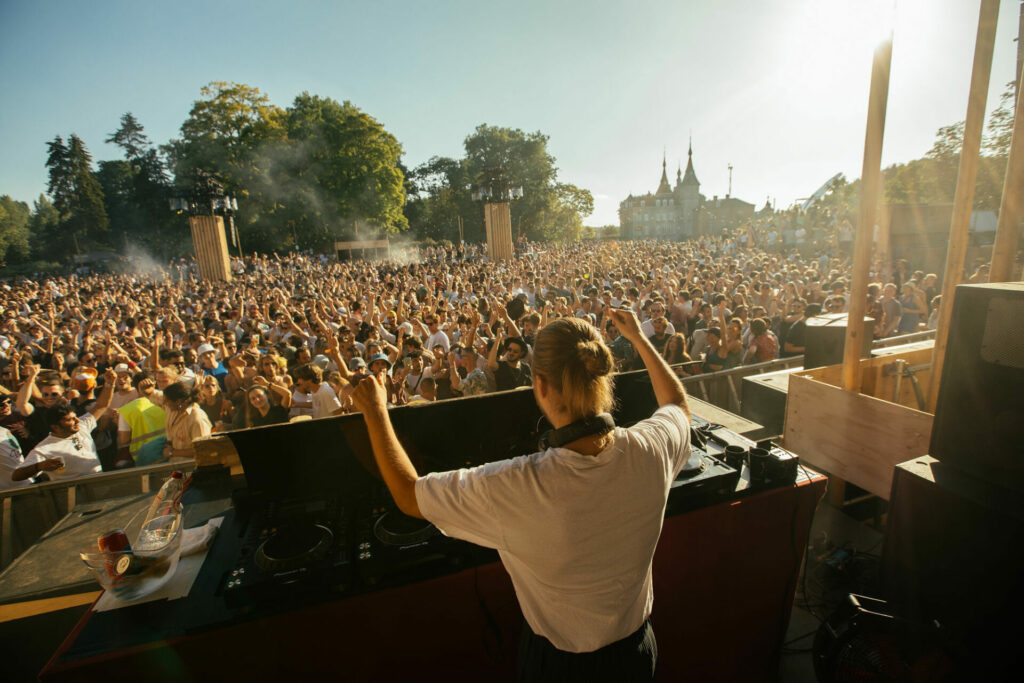Nightlife in Belgium is enjoying a renaissance since the lifting of Covid-19 restrictions. Now with the festival season gearing up, it should be a good summer for music lovers both inside the clubs and out in the fields, with incredible line-ups being announced and talented DJs returning to their places behind the decks.
One significant change that is becoming more evident as schedules are released is that female artists are increasingly featuring on the bill – DJs in particular. Women who spin records have themselves noticed the shift and welcome the greater inclusion for artists. But although most feel that this is a step in the right direction, there is still a way to go to reach gender equality.
As in other sectors, women in the music business often have to 'prove' themselves in order to get the same opportunities as men. Female DJs are more often than not booked as openers for another performer rather than as the main act, which means that they are also paid less.
This is why Belgian female DJs such as Diane, Azo and Bo Meng do not take their elevation to headline act for granted.
Starting out
Diane began dreaming of performing in 2016 and took her first steps into the business a few years later. "I don't remember exactly when I had my first gig, but I know that I felt very anxious," she says. "When I started DJing, there were very few women in the scene. I had to find my place in this macho world on my own."
Diane says her work as a DJ at BRUZZ and sound engineer at VRT helped her hone her skills and rise to compete on an equal footing with male counterparts. "I feel more comfortable with DJing in recent years because I now know better how everything works," she says. "I still get comments on things that I know wouldn't happen if I had been a man. You always have to prove yourself, even if your level is as good as the male DJ who is booked at a better hour."
As well as the pay gap, female DJs also experience sexism in the sector and complain that they are viewed as sexual objects. "If you dress a certain way, you're probably going to be more in the picture, which shouldn't be a factor at all," Diane says. "Organisers should book artists based on their level, skills and experience, and not on gender or looks."
Booked for ulterior motives
Some promoters and event organisers put a woman on the line-up to get the stamp of "inclusive festival" rather than because they value the artist.
DJ Azo is part of the LGBTQ+ community and says that she often feels that she is being booked for reasons besides her talent. "I'm a woman and I'm also active in the queer community," she says. "For example, I organise the 'Queer Future Club' that provides a safe space for people in that community. I notice that I am increasingly booked so that some organisers can promote a certain image, namely that they are inclusive and diverse."
Related News
- Balkan Trafik festival comes to Brussels and Namur from 28 April
- Belgian music sales skyrocket to highest level in years
- Art and events to watch out for in Brussels this April and May
Azo has been an electronica DJ since 2007 but even now, she still finds male acceptance hard to come by. "I've been doing this for about 15 years, and I still notice that some men have an issue seeing a woman behind the turntable," she says. "At one of my last shows, a man came up next to me with a bucket full of expensive booze to intimidate me. I don't respond anymore, but it is annoying to be confronted with that. Fortunately, I usually mix in places where people deal with female DJs in a respectful and honest way."
Supporting black DJs
Bo Meng is a black woman with an afro hairstyle that she wears with pride, but this doesn't always play to her advantage, she says. In the Brussels Beursschouwburg or in the Ancienne Belgique, she usually plays a set full of records by black artists. The selection is a conscious choice to shed light on this particular culture. Her experience mixes gender stereotyping with a racial element. She continues to fight against every discrimination made against herself while looking to support others on the scene.
Bo Meng says she uses her position as a black female DJ to keep the door open for other black women who want to take a chance in the industry. "When people ask me if I know a good DJ for a certain event, I always refer to a black woman or a black non-binary person. That's my way of contributing to a more balanced line-up in nightlife. We must continue to support each other and create opportunities for each other."

